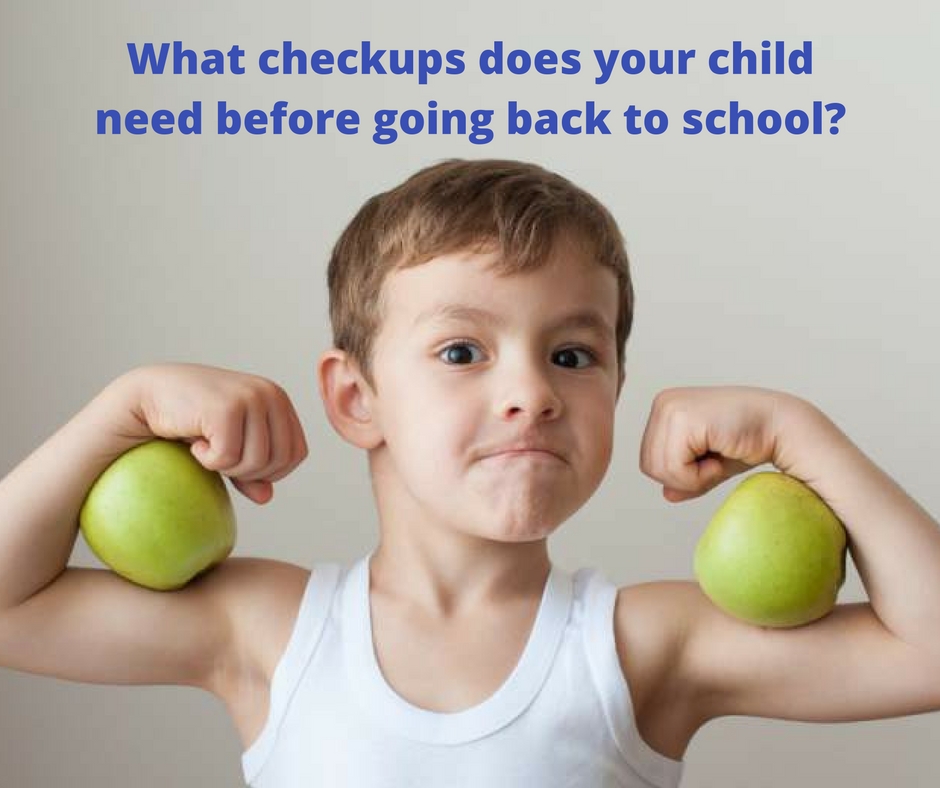
Whether you’re the parent of a kindergartner or a senior in high school, back to school also signals that it’s time for your child to get his or her annual checkup. Back to school means your child could be exposed to more illness and common childhood ailments. An annual visit to the doctor can help protect your children.
Typically, a doctor will check things like blood pressure and how much the child has grown, in addition to other vitals, such as weight, body mass index and more.
The Importance of Immunizations when going back to school
Immunizations are the single most important thing you can do to protect your child. The immunizations required for children to enter school vary from state to state.
In Louisiana, the following vaccines are needed for your child to start kindergarten:
- Two doses of Varicella vaccine
- Two Measles, Mumps, Rubella vaccines
- Three Hepatitis B (HBV) vaccines
- Tetanus Diphtheria Acellular Pertussis (TdaP) and Polio vaccines
The following vaccine is required in Louisiana before entering the sixth grade (age 11):
- One Meningococcal Vaccine (MCV4)
The Centers for Disease Control has a National Immunization Program website you can check out for more information on vaccination guidelines. You can also call the National Immunization Hotline at (800) 232-2522.
Flu shots
Children who are younger than 9 years old and haven’t ever had a flu shot will need two doses of the flu shot, given at least one month apart.
Annual flu shots are recommended after the first two shots, and they are especially recommended if your child has any of the following conditions:
- Asthma or other lung disease
- Sickle cell anemia
- HIV
- Diabetes
- Heart or kidney disease
Other Medical Issues to Monitor
Aside from vaccines and immunizations, there are other back-to-school potential health problems that you should be monitoring with your child. These include:
- Lice – tiny bugs that live in hair and spread quickly through close contact with other children and sharing hairbrushes and hats. Sometimes, an over-the-counter lice treatment is enough to kill the bugs, but other times a visit to the pediatrician is needed.
- Food allergies – food allergies are seen more in children than adults, and you’ll need to make sure that your child doesn’t have severe food allergies. The most common food allergies in children are peanuts, milk, wheat, soy, and eggs.
- Pinkeye – The proper name for Pinkeye is conjunctivitis, but whatever you call it, the infection spreads rapidly through classrooms.
- Heavy backpacks – A common rule of thumb is that your child’s backpack should not weigh more than 10 percent of the child’s body weight. If it’s heavier than that, doctors recommend buying a backpack with wheels or a back pack that includes a support belt. Anything heavier without extra support could injure your child’s back.
